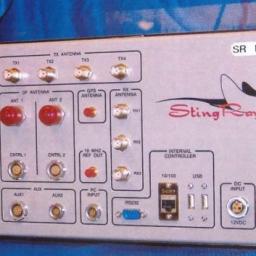Linux kernel hacker Christopher Barry
has engaged a full frontal assault of the systemd Linux subsystem and its creator, Lennart Poettering, on an "Open Letter to the Linux world" published on the Linux kernel hackers' mailing list. Here's a taste:
So why would very smart people who love and use Linux want to create or embrace such a creepy 'Master of All' daemon? Ostensibly, it's for the reasons they say, as I mentioned at the top. But partially I think it's from a lack of experience. Not a lack as in programming hours, but a lack as in time on the Planet. Intelligence alone is not a substitute for life experience and, yes I'll say it, wisdom. There's no manual for wisdom. Implementing systemd by distros is not a wise move for them over the long term. It will, in fact, be their ultimate undoing.
Systemd has been no stranger to controversy. It broke a lot of systems, and important figures in the Linux world have registered their doubt about the replacement to the well-known System V init system, which was a fully transparent collection of human-readable scripts but that led to slow boot times. It will be interesting to see if Barry's rant generates a groundswell of antagonism against the new system, or if it gets ignored, or if it leads to meaningful debate and change.
[Ed. note: picked up this story from comp.misc. Thanks, Rich!]
This isn't a poll about your favorite environment. Because most of us use different machine or desktops/window managers in life, or like to switch from time to time, this poll asks you to list all the environments you use in an entire month. That includes your work machine, your laptop, the wife's Mac, and grandma's home Unix workstation. Whatever you come across in a month, tick the box! Expecting to see Windows at the top here, but let's see what else rises to the surface!
http://pipedot.org/poll/2014-08-11/in-any-given-month-i-use-as-interface
This Friday's distro is
Securepoint Security Solutions, a firewall and VPN distro that offers a full-featured suite of firewall tools designed for enterprisewide deployment. Not only can it protect an internal network from outside attacks, it also helps segregate parts of your internal network and define custom protection rules for each. Securepoint lets you create and manage VPN tunnels for remote users and define traffic filters, reports, and alerts for your entire network. Securepoint Freeware is a very secure and free firewall solution for protecting your Internet gateway. Securepoint can as well be used with existing firewalls and to protect interconnected locations or divisions.
These days a lot of distros are built off of Debian or Ubuntu. This isn't one of them. In fact it appears the distro is simply the software side of a hardware solution they sell at
http://www.securepoint.cc/ along with VPN clients, email archiving storage, and other products aimed for the modern corporation or enterprise.
I've tried building a system like this myself though and realized it's not easy. If they are making it easier to build and manage segregated networks they are probably going to find a ready market interested in this software.
 Steven J. Vaughan-Nichols has just reviewed the recently released LibreOffice 4.3, and gives it a thumbs up
Steven J. Vaughan-Nichols has just reviewed the recently released LibreOffice 4.3, and gives it a thumbs up. It has made huge strides since the OpenOffice.org - LibreOffice "divorce" and this version includes improvements in office format interoperability, spreadsheet performance and usability, comment management, and the arrival of 3D models in Impress.
The program's code quality has also been greatly improved in the last two years. Coverity Scan found the defect density per 1,000 lines of code has shrunk from an above the average 1.11 to an industry leading 0.13 since 2012. According to Coverity, "LibreOffice has done an excellent job of addressing key defects in their code in the short time they have been part of the Coverity Scan service."
Like previous versions, LibreOffice is available for Linux, Mac, and Windows systems. You can also run an older version, LibreOffice 4.2, from the cloud using a Software-as-a-Service (SaaS) model.
With the United Kingdom making LibreOffice's native ODF its default format for government documents, LibreOffice is certain to become more popular. Other cash-strapped governments, such as Italy's Umbria province, have found switching to LibreOffice from Microsoft Office has saved them hundreds of thousands of Euros per thousand PCs.
The release notes are available here. Gentlemen, start your downloading engines!
Given the huge evolution and expansion of the consumer electronics market, we are generating a lot of discarded, electronic devices. The New York Times ponders
Is smart garbage the next booming category of electronic waste?By some measures, we are witnessing a rapid change in computing and the swift evolution of relationships between humans and automated helpers. A vision of the future is materializing before our very eyes, the development of networked helper bots that will manage every aspect of our lives, automating it and, theoretically, improving it by simplifying it.
But what happens when those devices go into disrepair - or worse, obsolescence - and their sleeker, faster successors go on sale, as part of the relentless cycle common among most major hardware companies?
The Monday poll asks:
what's your next purchase going to be? Answer carefully, because the Corporate Advertising Consortium that secretly runs Pipedot will be paying attention and the next time you visit this site it will be plastered with banner ads for whatever you choose.
Oh wait, Pipedot is community-run and free of banner ads. In that case, have fun.

Are you the proud owner of a snazzy, new smartphone? Thrilled with the convenience and utility of having this clever device in your pocket, connecting you to friends, colleagues, and information? Guess who else is excited about your purchase? Law enforcement.
Meet the Stingray, essentially a honey pot, fake cell tower. Your phone connects to it, and you're done.A stingray is a false cell phone tower that can force phones in a geographical area to connect to it. Once these devices connect, the stingray can be used to either hone in on the target's location or, with some models, actually eavesdrop on conversations, text messages, and web browser activity. It's not clear how much the police cooperate with the cell phone carriers on this - in at least some cases, the police have gone to carriers with requests for information, while in others they seem to have taken a brute-force approach, dumping the data of every single user on a given tower and then sorting it to find the parties they're interested in tracking. Stingrays can be used to force the phone to give up its user details, making it fairly easy for the police to match devices and account holders.
[Ed. note: Time to give up your cellphone and go back to using public phone booths? Oh, wait "]
 Facebook is revamping its stance on privacy again
Facebook is revamping its stance on privacy again. Slate writes:
Remember when Mark Zuckerberg didn't believe in privacy? When he argued that it was "no longer a social norm"? When Facebook employees wouldn't even use the word "privacy" at a forum about the future of privacy? That was then. Now, it seems, privacy is back-not just as a social norm, but as a business model.
A good read, by Will Orison. He reviews a number of serious changes over the past six months and identifies a trend. This is good for the consumer, so let's hope the shift is industry-wide.
[Ed. note: I conclude that Zuckerberg's occasional "declaration" sounds like uncontrovertable fact but is usually a desperate attempt to make what's good for his greedy little company sound like what the consumer wants or deserves. This step back shows he is sometimes obliged to eat some crow pie. Bon appetite, Zuck.]
Interesting things brewing over at Google, where two recent patents show a push to operationalize
new technology that lets you unlock a device using a retinal scan.
The process has three steps:
Receiving light on an iris of an eye
Detecting, at one or more light sensors disposed on or within a transparent lens covering at least a portion of the eye, light reflected from the light incident on the iris of the eye, wherein the light reflected comprises image data indicative of a pattern associated with the iris.
Outputting an iris fingerprint based in part on the image data
A related patent looks at an encoded contact lens and its application. Perhaps the days of Google Glass will be numbered, as the fashion-conscious will quickly move right to the next, obvious step.



